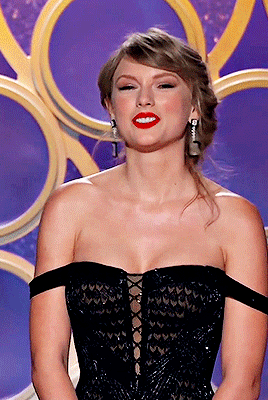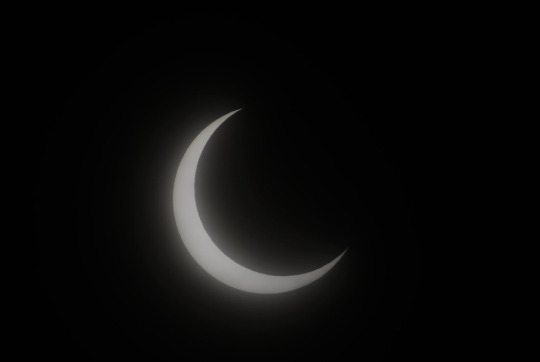Text
Thinking about the Holmes story where a blind girl goes to him and is like "My fiancé is missing and he kept telling me the week leading up to his disappearance that he would always love me and come back for me,were anything to happen so I think he knew he was in trouble and I love him so much and I'm going to wait for him but I'd like to find him faster,ya know?" And Holmes figures out that it was this girl's parents to scam her out of money she was owed from an estate which she gave to them because she was still living at home,which she wouldn't be if she ever married,so her step father PRETENDED TO DATE HER for MONTHS to keep her from ever getting engaged to a real person and when Holmes finds out he confronts this man and this man is like "Well,you caught me! But it wasn't illegal:) so:)" and Holmes is like "No,but it was sickening and cruel and if she had a brother or good male friend he should post you up and whip you but she doesn't." And the man is like "No,she doesn't." And does the Victorian version of sticking his tongue out and Holmes is like "Well,I guess I'll do then!" And HE PULLS OUT HIS HUNTING WHIP.
30K notes
·
View notes
Photo




Taylor Swift presents at the Golden Globes 2019
1K notes
·
View notes
Text
me: hmm time to google something
google every time: can i PLEASE have your location PLEASE 🥺🥺🥺 I need to know where you live so BAD 😫😫😫😫 Where do you fucking from?????? 😩😩😩😩😩😩
182K notes
·
View notes
Text

There is a road, no simple highway, between the dawn and the dark of night, and if you go, no one may follow, that path is for your steps alone.
-- Robert Hunter
374 notes
·
View notes
Text
if you felt a weird spasm in your body its probably because i was delicately stroking your icon with my mouse or something sorry
16K notes
·
View notes
Text
Just being on Tumblr still like usual
#tumblr girl#tumblr#usual#christmas#hanukkah#kwnanza#holiday#writing#written post#post#og#blackrosewithangelwings#black-rose-with-angel-wings
0 notes
Text
Why you don't know anyone who celebrates Kwanzaa
"Because no one cares"
"Because it's a sham holiday made by a con artist"
"Because it's dumb"
"Because no True African would ever celebrate Kwanzaa."
These are all bad faith arguments. They aren't meant to actually explain why, and do more to devalue the holiday as well as people who celebrate it or at least respect it.
So, why don't you know people who celebrate Kwanzaa? After all, you have so many Black friends, or maybe even you are Black yourself, shouldn't Kwanzaa be everywhere?
This post is a bit long, and some points are explored more deeper than others, but I think this will provide an explanation that's actually pretty fair and common sense. The short version:
Kwanzaa is a newer, anti-consumerist holiday that does not appeal to every single Black person. And that's okay!
1. Kwanzaa is a newer holiday.
Kwanzaa is only about 60 years old. It's not going to be as popular as Christmas. Other holidays, say Veteran's Day, Memorial Day, or Martin Luther King Jr. Day are about as old or even younger than Kwanzaa, so why are they celebrated more widely? Well, it helps that they're all federal holidays with a state structure to back them up. Individual people can celebrate those holidays, but they don't have to, institutions celebrate them for us by giving us time off work and making a public statement (maybe a donation or two). Other than that, those holidays are largely upheld by community events, just like Kwanzaa (more on this later).
The types of family traditions we associate with Christmas take generations to build. Even other older holidays like Mother's Day don't have any real traditions inherently associated with them--we all give our moms a gift but beyond that, everyone engages with it differently.
New holidays need time to catch on. Institutional structures help speed that process along, but Kwanzaa doesn't really have that. So it's going to be slower than others in terms of attracting people.
2. Kwanzaa is anti-consumerist inherently.
In America, consumerism makes up a very large part of how people engage in holidays. Note that I'm not saying "people only celebrate other holidays for consumerist reasons", I am saying that a lot of the driving forces that 'remind' us to take holidays seriously in the US are market forces. We're inundated with advertisements, sales, and decorations that help create a 'feeling' of the holiday (be it Christmas, Valentine's Day, Halloween, etc) which also make it easier to engage with the holiday. We can get the supplies we need at the store. If we don't have plans then there's probably a business throwing a party around that time to keep us entertained. Gift-giving and feast preparation is expressed through buying products en masse so we prepare financially. Holiday specific media sculpts our collective understanding of the holiday's themes even if we don't engage directly.
Kwanzaa, as an explicitlyanti-consumerist holiday, doesn't lend itself to that level of cultural zeitgeist in the US. People exchange gifts and decorate places for Kwanzaa, but commerce during Kwanzaa is typically kept within Black communities through dealing directly with (small) Black Owned businesses. Given that most corporations in the US are white owned, there's very little reason for the market structure to incentive our continued engagement in Kwanzaa. The passive acknowledgement that it's a holiday that exists is the most we can really hope for.
Imagine Halloween without candy sales, Spirit Halloween stores, Halloween parties or costume nights at our favorite restaurants and bars. Imagine no horror movies coming out in October! In a world like that, I and many other people would still celebrate Halloween, but it wouldn't be as easy, and a lot of people probably wouldn't acknowledge it at all, because it isn't as easy.
Kwanzaa explicitly resists the market forces that help holidays stay in our daily lives. We all value our holidays beyond those forces, but we can't deny the very heavy role they play. We can argue that such market forces are morally neutral or even good, but not in this post--whatever your view of holiday consumerism, it's critical to understand that Kwanzaa was organized specifically for people who don't appreciate such consumerism.
3. Kwanzaa does not appeal to all Black people equally.
I think this is one of the hardest points for people both within and outside the community to grasp. The holiday is for Black people, and is meant to appeal to as broad a sampling of Black people as possible. That doesn't mean it will appeal to everyone, though.
The target audience for Kwanzaa is Black people, regardless of nationality, who believe in a shared political unity, heritage, and cultural engagement of all Black people regardless of nationality.
Thing is, not all Black people believe in or value those things. Not all Black people are Pan-Africanist, Afrocentrist, or Black Nationalist, or any other Negritude philosophy. These philosophies are widespread in politics and scholarship, but outside of those dimensions of life engagement with them gets complicated.
You may have heard that "no Africans celebrate Kwanzaa" this is largely true because Africans live in families and communities where their African heritage is already affirmed through other means, including other holidays. Kwanzaa therefore doesn't appeal to them, even if they do believe in all it's themes. Such people may go to Kwanzaa events if invited, but they likely wouldn't hold them for themselves.
Many in the African Diaspora understand their identity most immediately by the region they settled in, and only have a distant sense of African identity. They don't deny being African or having African heritage, but they see being Caribbean, or Brazilian, or American as more relevant. Kwanzaa therefore doesn't appeal to them as it's not specific enough.
Kwanzaa is not closed to any Black demographic and actively encourages all of us to celebrate it. But not all of us will find it appealing.
I would compare Kwanzaa to a holiday like Easter--its a Christian holiday meant to appeal to all Christians equally. But if you aren't church-going and have no children in the family, you probably don't celebrate Easter to any meaningful extent, or your engagement is so personal that it isn't considered very mainstream or traditional.
The point I'm trying to make is: holidays aren't guaranteed to appeal to everyone in their target demographic. Though the reasons why diverge, not every Christian celebrates Easter, not every Black person celebrates Kwanzaa.
4. Communal Kwanzaa celebration is more popular than in-home, but that also carries some drawbacks to it.
Whenever people interested in celebrating Kwanzaa ask me how to get started, I often tell them to look into community celebrations. They're usually put on by churches (perhaps even mosques), community centers, cultural activity groups, or political groups. And therein lies the problem--if you don't live in close proximity to that type of Black community, or the community is invisiblized, then even if there are communal Kwanzaa celebrations to check out you probably won't know about them.
You can't just ask a random Black person about a Kwanzaa event, typically. My advice is to tell people to check out a Black bookstore (and, if available, an African cultural store or an Afro spiritual store). The types of people organizing Kwanzaa events are usually those deeply enmeshed in cultural and political Black discourses, particularly those that affirm an African heritage. But such people aren't found everywhere. In my experience, you can find such people and spaces in most major cities, and so a Kwanzaa celebration probably isn't too far away either. Everywhere else, though...
The only other option to find Kwanzaa celebrations, in my experience, are through Black student clubs in colleges. Not all of them do Kwanzaa activities due to many factors (cost, timing, interest, etc), but my undergrad college did and I know that others throughout the country do. However, such activities may not be open to the public (again, for varying reasons -- cost, timing, interest, college policy...).
When people ask about personal celebration, they usually ask about in-home celebration, treating community celebrations or celebrations in schools as less serious or legitimate. Kwanzaa in general is itself rare, but the idyllic in-home celebration is even rarer -- I myself was raised engaging in Kwanzaa almost entirely through community rather than in-home celebrations (though I started doing in-home for myself in recent years).
---
How, then, should we treat people who celebrate Kwanzaa, or even the non-Black people who don't celebrate it but acknowledge it as a valid holiday?
Honestly, I don't get why that has to be a question. Sure, it's a very marginal holiday, but it's also harmless to treat it respectfully and try and make room in your life in case you ever come across someone who does celebrate it.
I made this post because I often see this idea that people were "tricked" about Kwanzaa. I fail to see what harm has transpired. I don't get why people use their lack of awareness of Kwanzaa or Black communities that celebrate it as a "gotcha" that proves Kwanzaa is a scheme. When I do try to understand the logic underlying this, I come back to this idea that holidays and cultures have to earn respect and validation, that being included in our American idea of "Holiday Time" requires that holidays have a certain number of people we already respect, whom would be offended otherwise.
But that isn't a perspective that I share. I can't say how many people need to celebrate a holiday in America before I stop thinking it an insult or a lie that said holiday be included next to Christmas in a holiday greeting; the number doesn't exist because I don't hold Christmas or Hannukah in so high esteem. I value Christmas in as much as I recognize other people value it, the same is true of Hannukah and Yule (and even the pagan witches I've known didn't celebrate Yule). To me, the only thing one needs to be worthy of consideration as one of The Holidays is to simply be celebrated by people around this time of year.
141 notes
·
View notes
Text
Christmas!!
Merry Christmas, Hanukah, Kwanza (or whatever you celebrate)
Wishing you happiness and prosperity
and a wonderful new year!!
tag your mutuals or whoever you want!
@m3ll0m0chi @g00bi3 @ne-cocoa @bonsai-maze @mr-atomicrain @hairdryerbath @cheddarcheddarcheezits @sleepy-drawss @chipi-chupi-chips @imjusthereforthecale @m0n5t3r-3n3rg7 @weaverpop @redson-lmk
285 notes
·
View notes
Photo

Christina Marie Brown, Ghost I, from My Body is a Haunted House
6K notes
·
View notes












